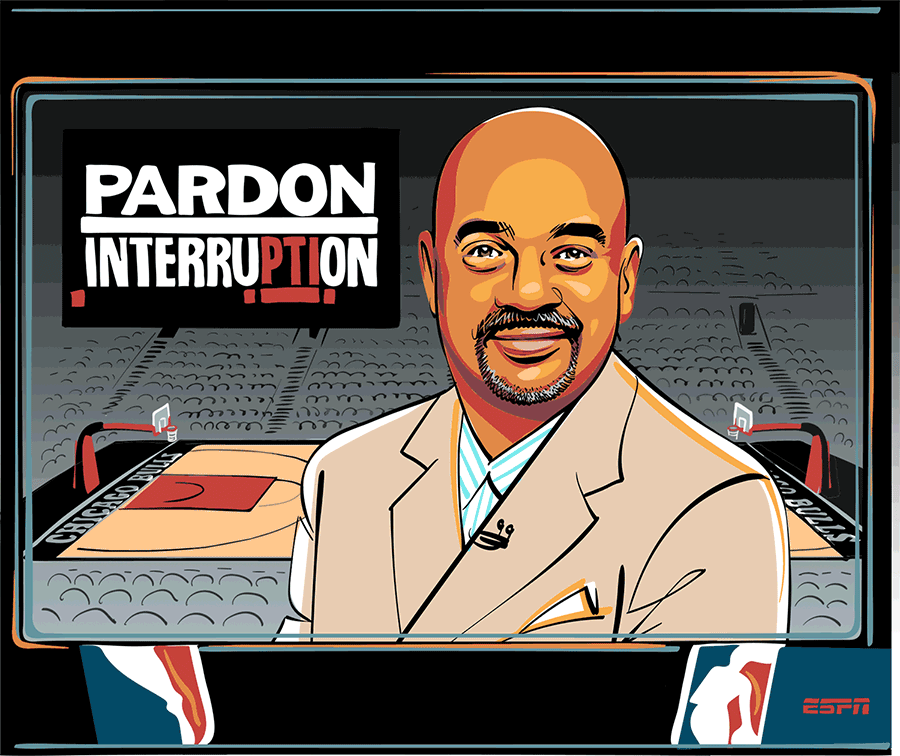
This pandemic is the most difficult thing the nation has been through in my lifetime. I don’t want to dismiss civil rights fights that went on for decades, but everything didn’t come to a stop. Sports and entertainment were part of the way America dealt with World War II. A big part. President Roosevelt talked about those things going on. Not having that has been awful. Sports rallies communities like nothing else. People can be divided by religion and politics, and sports is often the only thing that brings them together. In 1968, when we lost Martin Luther King and Bobby Kennedy and then had the riots and the convention in Chicago, that was the most important year in my life. This is going to replace that.
I grew up in West Chatham, went to high school at Ignatius and college at Northwestern. My sense of who I am and what I do was forged in Chicago.
My father and mother were sharecroppers who fled the South as part of the Great Migration when they were 19 and 14. They left everything they’d known to forge a life in Chicago. My dad didn’t graduate high school and died at 60 of lung cancer. He was a tough motherfucker, physically and mentally. My mom, who died last July at 93, worked in the Chicago public school system for 35 years. They were big on, “You’ve got to be great. There’s no excuses. The amount of work you have is nothing compared to what we did to get to this point.” I still hear their voices in my head.
I’m not nearly as tough on my son as I should be. Part of that is being an older parent. I was 49 and had a heart attack before he was born. That’s the wrong order. I believe that if you’re the kind of father you ought to be, your son — and I can’t speak to daughters, because I have none — will be a little afraid of you. He should be afraid of the consequences. That’s what respect is.
I’ve always loved history. When I was 11 and 12, I used to go to the Chicago Public Library on Saturday afternoons after my music lesson downtown and look at a whole sports season on microfilm. Maybe the 1927 Yankees. Or Joe Louis’s fights leading up to Max Schmeling. I’d be there all day. I felt like I knew more about sports than any kid my age. Because I did.
As a child, I was allowed to argue about anything sports related. My brother and father and I would do that every night at the dinner table. But you had to back up your argument. My brother likes to say he was my first cohost.
The reason Pardon the Interruption works is because Tony Kornheiser and I weren’t paired. We never took a class. I don’t know shit about TV, and neither does he. I don’t even know how to spell “chyron.” But we know about sports and the human drama of athletic competition. And we’re confident about it to the point of being cocky. Basically, you’re telling viewers, “Fuck you. You don’t know that much. Listen to this.” You do it with a smile and a kind of veneer, but that’s what the show is. There wasn’t anything like it on at the time, except Siskel & Ebert, and that was for movies. I knew Tony and I could have that conversation. I just didn’t believe people would care. So we didn’t quit our day jobs at the Washington Post. Now the show’s been on for 19 years and people say, “I’ve been watching you since the third grade.”
I’m a terrible loser. Terrible. I once lost to my brother at tennis while we were on vacation. I don’t know if I spoke to him for the rest of the time.
I’m addicted to excitement. And I’m lucky — in this profession, I never get bored. Every four or five days, I’ve got to be somewhere else. And there’s nothing like being at a game. I feel bad for people who were never there to hear Michael Jordan introduced. And if you’re going to a Blackhawks game and won’t be in your seat 10 minutes before the puck drops to hear Jim Cornelison sing the national anthem, I’m not going with you.


